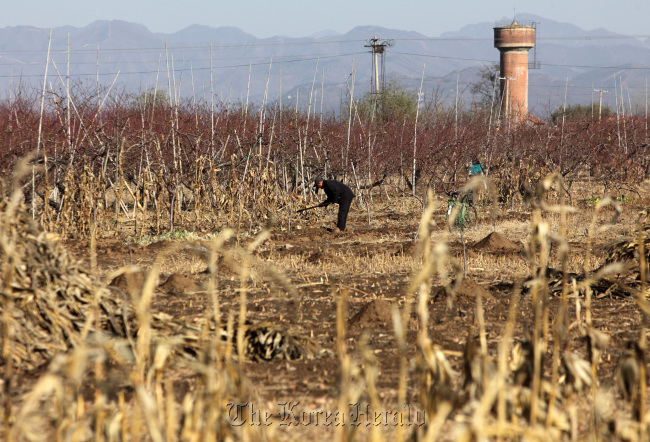
China said it will give farmers better land protection, higher incomes and improved public services to help close the gap with urban areas and narrow the rich-poor divide.
The government will ensure farmers earn “reasonable returns” from planting crops and increase agricultural subsidies, the official Xinhua news agency reporte, citing an annual central rural work conference.
The goals, which include increasing rural incomes by at least as much as those in urban areas, reflect the new leadership’s focus on reforming the land system and addressing wealth disparities as it encourages migration into towns and cities to boost consumption. Li Keqiang, set to take over from Wen Jiabao as premier in March, is championing urbanization as a growth engine.
“A completely new policy approach is emerging under Li Keqiang,” said Yuan Gangming, a researcher in Beijing with the Chinese Academy of Social Sciences. “It’s about giving farmers a bigger share from land deals, it’s about changing local governments’ reliance on revenues from land, and it’s ultimately about a fairer system of sharing China’s economic growth.”
Yuan said he expects the new government that will be appointed in March will announce “a slew of policy initiatives” from changes to the household registration, or hukou, system to trading in land-use rights as part of Li’s urbanization drive.
Li, currently a vice premier, became No. 2 in the standing committee of the new Politburo, the Communist Party’s highest ruling body, in a once-a-decade transfer of power last month. At the meeting, outgoing General Secretary Hu Jintao said the party pledged to “give more to farmers, take less from them” and that resolving farmers’ issues is the “number one priority” in its work.
Land grievances have sparked thousands of protests across the country, posing one of the most serious challenges to the Communist Party. Residents in the village of Wukan in southern China grabbed world attention last year when they forced politicians out of office over a land grab.
About 43 percent of villages in China have experienced land appropriations since the 1990s and land disputes are the leading cause of social unrest in the country, according to Xiaohui Wu, a land-tenure specialist at Landesa, a Seattle-based group that studies global land issues. (Bloomberg)
The party last month pledged to narrow the divide between rich and poor and urban and rural areas. China’s wealth gap is now 50 percent higher than a risk level for social unrest, according to a central bank-backed survey published this month.
Urban per capita disposable income in the first nine months of 2012 rose 13 percent to 18,427 yuan ($2,958), almost three times the level of the per capita cash income of 6,778 yuan in rural areas, according to National Bureau of Statistics data.
“The most outstanding problem in our country’s social and economic system is still the separation of rural and urban China; and the most serious factor hindering China from building up a comprehensive well-off society is the excessively big gap between urban and rural development,” Xinhua said, citing the work conference’s deliberations.
The government will work to ensure farmers who move to towns and cities receive the same treatment as urban residents, according to the Xinhua report.
“In the past, urbanization in China was equal to property development,” Yuan from the Chinese Academy of Social Sciences said. “In the future, urbanization will focus on people. Then China’s economy can grow in a sustainable manner.”
At the annual central economic work conference earlier this month, policy makers signaled tolerance for a slower pace of growth with a pledge to seek a higher “quality and efficiency” of expansion next
The government has set an initial target for 2013 expansion of 7.5 percent, Bloomberg News reported on Dec. 18, citing two bank executives and a regulatory official briefed on the matter. The goal was lowered to 7.5 percent for 2012 from the 8 percent pace in place from 2005 through 2011. Growth has averaged 10.6 percent a year in the past decade.
(Bloomberg)








![[Weekender] Korea's traditional sauce culture gains global recognition](http://res.heraldm.com/phpwas/restmb_idxmake.php?idx=644&simg=/content/image/2024/11/21/20241121050153_0.jpg)